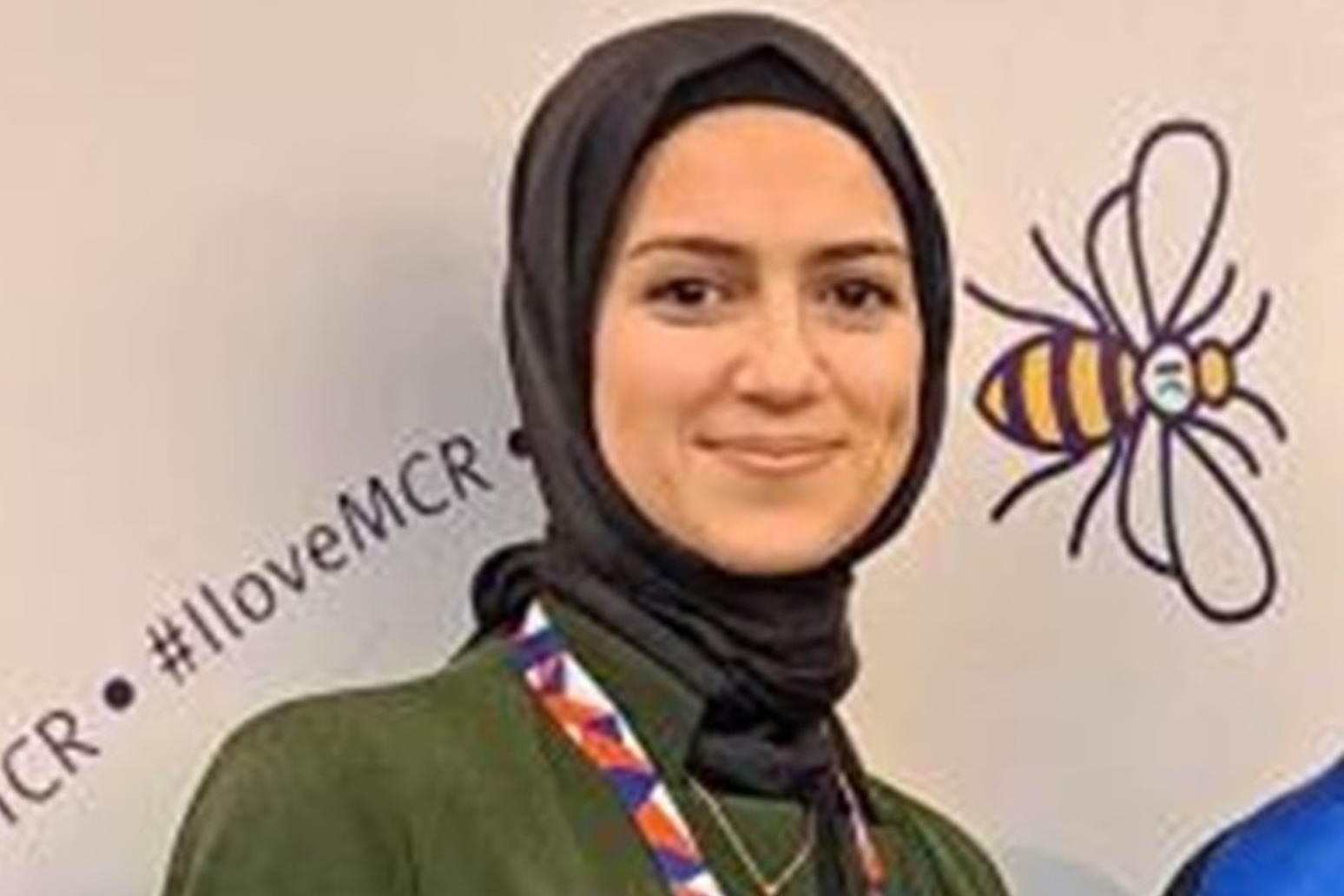
A British teacher was turned away at the Rafah border crossing into Egypt as her mother in the UK told of her daughter’s “limited” food and water supplies.
Zaynab Wandawi, 29, of Salford, Greater Manchester, travelled to Gaza at the beginning of October with her husband, who is British Palestinian, and his relatives for a family member’s wedding before the Israel-Hamas war erupted.
On Wednesday the Foreign Office said the Rafah crossing will be open for “controlled and time-limited periods” to allow specific groups of foreign nationals and the seriously injured to leave Gaza.
But Ms Wandawi’s mother, Lalah Ali-Faten, 52, from Prestwich, north Manchester, told the PA news agency when the couple arrived at the border they were told their names were not on a list of people permitted to leave.
Ms Ali-Faten, who has been communicating with Ms Wandawi’s husband for updates, said her daughter is “putting on a brave face” but added that their food supply is “limited”, their drinking water is “depleted” and they are “washing in sea water”.
She told PA: “They (Ms Wandawi and her family members) went to the border, they were denied exit, they were informed that British nationals are not leaving today and their names are not on the list.
“(Ms Wandawi’s husband) said they’re waiting for names to be released so [they] can leave.
“They’re hoping it’s just a waiting game and they’ll get out as soon as possible but they went to the border, they queued up, they spoke to the officials and they said no British nationals are leaving today, (saying) ‘your names are not on the list’.”
Ms Ali-Faten said she was frustrated after having a “surge of hope” upon hearing that foreign nationals would be granted passage out of Gaza.
“It’s very frustrating when you hear that they are allowing foreign nationals to leave and then you have that surge of hope and then throughout the day when they tell you we’re not on the list, it’s really frustrating,” she said.
“[It] kind of gets me upset with the Foreign Office to be honest.
“Why are you not prioritising your citizens when other countries have managed to do the same for theirs?”
Ms Ali-Faten said she called the Foreign Office to ask whether UK nationals would be able to leave “and they didn’t know, they said we don’t have that information”.
She said that when she asked if there would be support waiting for them on the other side of the Egyptian border, she said she was informed by the Foreign Office that they “don’t have anybody there” and those leaving would have to “call a hotline number”.
“Well, if you’re in the middle of a desert, it’s not very comforting just to pick up the phone and call a hotline number,” she said.
“It’s not going to get you the support that you need once you leave a war zone, so I feel like they could do more.”
Ms Ali-Faten said Ms Wandawi and her family members are “hanging on” in the hopes that they will be allowed to leave as “each day comes”.
She added: “I’m grateful that they’re still alive, I’m grateful they’ve not been injured, they just deserve better support and care from the Foreign Office, to be honest.”
According to the Foreign Office, the first British nationals have now left Gaza via the Rafah border crossing into Egypt.
A spokesperson for the Foreign, Commonwealth and Development Office (FCDO) said: “We will continue working with partners to ensure the crossing is opened again, allowing vital aid into Gaza and more British nationals to leave safely.
“We are regularly updating all British nationals registered us.
“The crossing will be open for controlled and time-limited periods to allow specific groups of foreign nationals and the seriously wounded to leave.
“We have agreed a list of British nationals that want to leave Gaza with Egyptian and Israeli authorities.
“We will be informed in advance when those on the list can use the crossing to ensure we can provide assistance.”
Published: by Radio NewsHub









